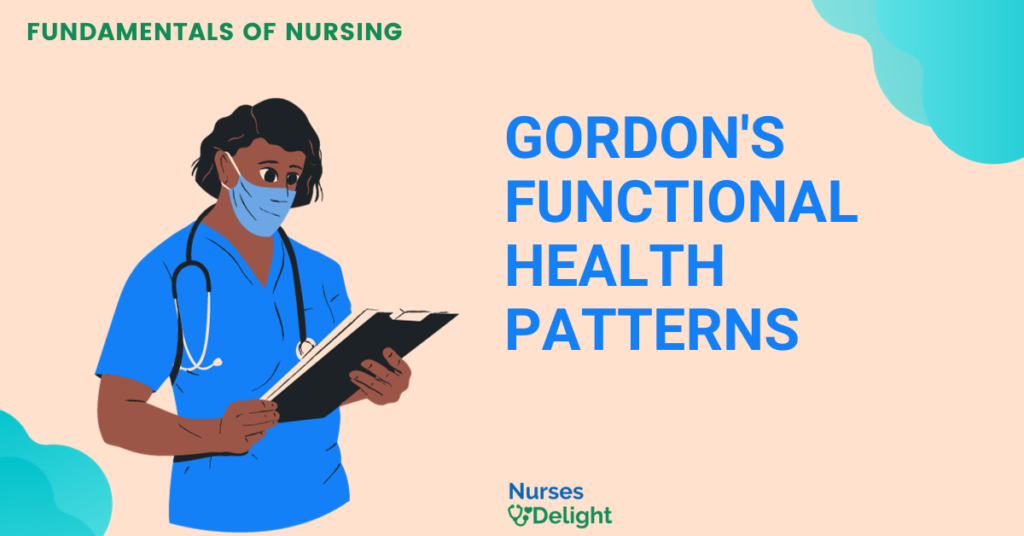Health history is essential when it comes to nursing care. It involves obtaining subjective data directly from the patient/client or from his or her significant other. Relevant questions are asked by the nurse and responses are delivered by the patient.
It is carried out in a sequential manner starting with the demographic data of the patient. The aim of history taking is explore actual or potential health problems that may affect the patient.
In this article, you will learn the steps of history and what each step entails.
Step #1. Preparation
Gather all the supplies you will need, for example a pen and a history form. Some facilities provide an electronic medical record system and you may not need pen and paper.
Ensure privacy by preparing an interview room or screens if it’s an open space. Ensure also that the environment is safe and comfortable for the patient.
Greet the patient and introduce yourself to them to allay anxiety. Explain the procedure to the patient and obtain informed consent.
Step #2. Biographical Data
Ask the patient the following;
- Name
- Address
- Date of birth
- Age
- Gender
- Next of kin
- Preferred language
- Relationship status
- Occupation
- Level of education
Step #3. Chief Complain
This is derived by asking the patient the main reason for seeking health care. An example of answer can be headache.
Step #4. History of Presenting Illness
Get the patient to tell you more about the chief complain. This may be done by using the PQRSTU Acronym. Let us use headache in this case.
P-Palliative/Provocative. Ask the patient to tell you what makes the headache better and what makes it worsen.
Q-Quality/Quantity. Is the headache persistent or is it on and off?
R-Region. Determine the location and in this case, it is automatically the head.
S-Severity Rate. Rate the headache using a suitable pain scale.
T-Time. Determine when the headache started.
U-Understanding. Establish whether the patient understands the cause of the headache.
Step #5. Past Medical-Surgical History
Ask the patient about;
- Previous hospital admissions, if any
- Past surgeries, if any
- If they are on any prescriptions or taking over the counter medications or supplements
- Allergies to food and drug, environment and blood reaction, if they have ever been transfused
- Childhood illness
- Existing health problems, whether acute or chronic
Step #6. Obstetric History
This applies to eligible female patients. Obtain information regarding the following;
- Menarche
- Last menstrual period (LMP)
- Gravidity
- Parity
- Menopause, if the patient is past 45 years
Step #7. Family History
Gather information about the family history of the patient. Find out if there are any familial illnesses such as arthritis, cancer, diabetes, hypertension, stroke, and tuberculosis. Note the members who are affected.
Step #8. Social History
Find out about the patients
- Marital status
- Living arrangements, whether they live apartments, bungalow et cetera
- Smoking habits, alcohol and substance use (If any)
- Activities of daily living (diet, hygiene, and ambulating), and functional patterns.
Step #9. Review of Systems
Obtain information on each system that was missed when the patient was giving the history of presenting illness. The systems include;
HEENT, neck, breasts, cardiovascular, respiratory, gastrointestinal, urinary, genital, musculoskeletal, neurologic, endocrine, and psychiatric.
Points to Note
- Always review what the patient has told you and point out important information so that they can correct any errors
- History taking always comes before physical examination under normal circumstances
- In emergency situations, history taking is done when the patient is stabilized
- Always leave patients comfortable and secure after history taking procedures
- Don’t forget to thank the patient or the significant other for their cooperation
- Document all findings




Thanks for ones marvelous posting! I actually enjoyed reading it, you’re a great author.I will be sure to
bookmark your blog and will eventually come back in the foreseeable future.
I want to encourage yourself to continue your great
work, have a nice weekend!
Thank you so much
I’m not that much of a internet reader to be honest but your
blogs really nice, keep it up! I’ll go ahead and bookmark your website to come back later on. Many
thanks
Thank you Ericka